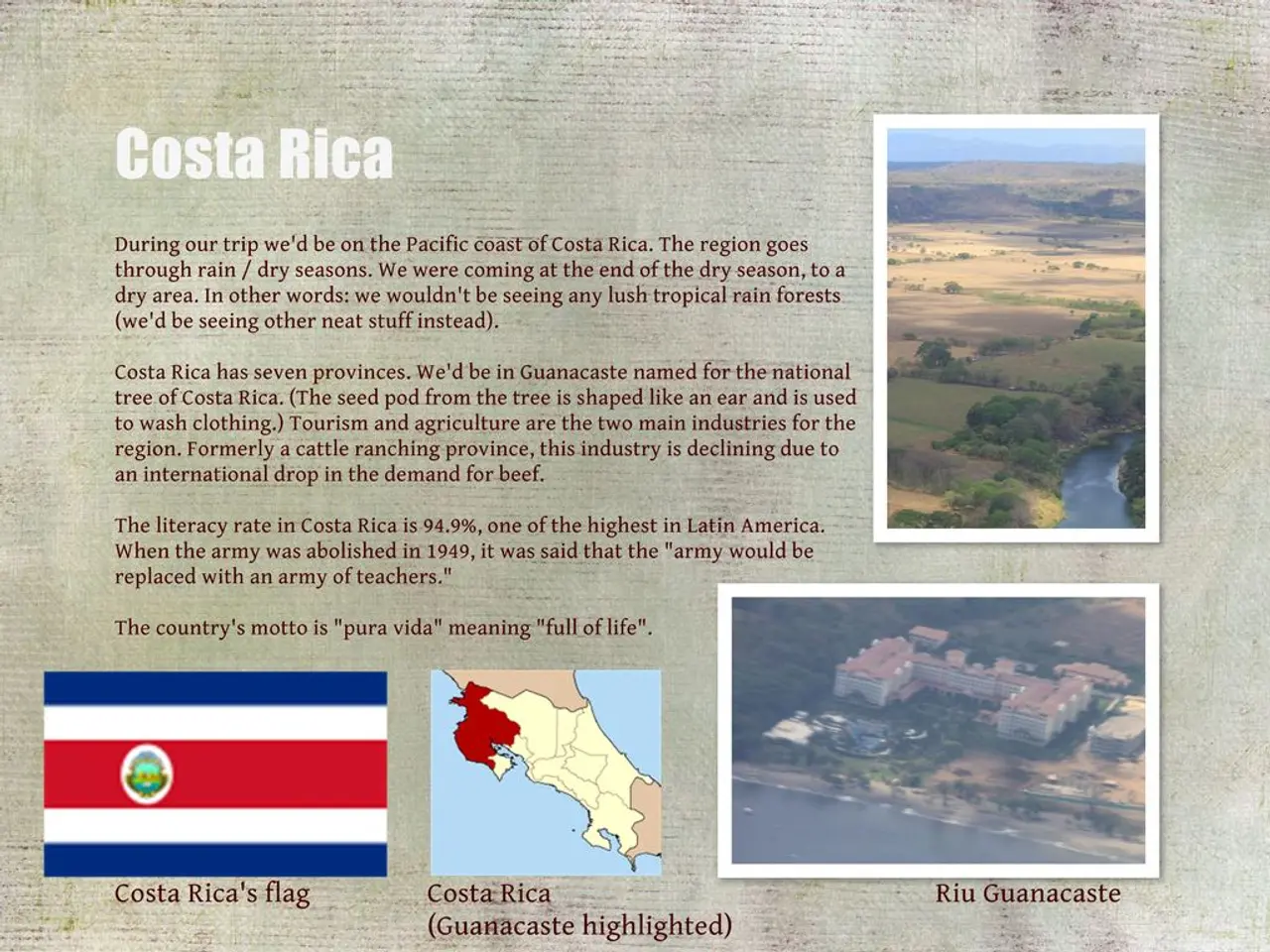Opponent in Honduran presidential race pledges closer ties with the United States and Taiwan, while rejecting overtures from China
Honduran opposition presidential candidate Nasry Asfura has outlined a bold new agenda aimed at revitalizing the country's economy, focusing on closer ties with the United States, restoring diplomatic relations with Taiwan, and leveraging the skills of returning migrants.
Asfura, a businessman and former mayor of San Pedro Sula, has proposed a shift from the current leftist administration by embracing pro-US policies and opportunities presented by migrant returns. His platform includes facilitating business registration and credit access for returning migrants, promoting foreign investment in infrastructure projects, and easing bureaucratic obstacles to stimulate economic growth.
One of the key aspects of Asfura's platform is the strengthening of diplomatic and economic ties with the United States. He openly supports this move, rejecting leftist criticisms of US policies like deportations, instead viewing them as economic opportunities for Honduras.
Asfura also plans to restore formal relations with Taiwan, reversing the current government’s alignment away from Taiwan in favor of China. He believes that the country was "100 times better off" when it had relations with Taiwan compared to China.
In addition, Asfura highlights that deported or returning Hondurans come back with valuable skills in construction and agriculture, as well as capital to start businesses. His plan includes reducing bureaucratic obstacles for these migrants to quickly register businesses and access financing, viewing them as vital for small and medium business growth and broader economic revitalization.
Asfura's agenda also includes attracting US multinationals for infrastructure projects, such as upgrading ports, building a railway system, expanding highways, and a regional gas pipeline. He aims to create jobs and fully employ the talents of returning migrants through these projects.
Moody's recently affirmed Honduras's credit rating at B1 with a stable outlook, citing reduced public debt. Asfura's platform could potentially boost the country's economy, forecasted to grow 3.3% this year and 3.4% in 2026, according to the International Monetary Fund.
The Central American country will hold its presidential election on November 30, and the candidate with the most votes will win. Asfura's pro-US stance contrasts with the incumbent leftist president Xiomara Castro’s policies, which have faced criticism both domestically and internationally for alleged inefficiency, corruption, and poor economic performance.
Asfura has been actively promoting his ties with the National Party and emphasizing democracy and freedom in his campaign. The Organization of American States (OAS) has been monitoring Honduras’s electoral process, underscoring the international attention on this political transition.
Asfura has also met with investors, think tanks, and congressional staffers in Washington, D.C., as part of his efforts to attract foreign investment and forge closer ties with the United States. His campaign has formed a "triangle" of friendly countries consisting of the United States, Israel, and Taiwan.
Salvador Nasralla, a centrist former vice president and the runner-up in the 2017 elections, is also competing to succeed Castro. The Castro government signed an $850 million program with the IMF in 2023 and completed the program's third review in June.
As the election approaches, Asfura's pro-US platform and promises to boost the economy through migrant returns and foreign investment could resonate with Honduran voters seeking change. His approach marks a significant departure from the current leftist administration, offering a new direction for Honduras.
- Nasry Asfura, a businessman and former mayor, plans to attract US multinationals for infrastructure projects like upgrading ports and building railways, aiming to create jobs and utilise the skills of returning migrants.
- Asfura's platform includes facilitating business registration and credit access for returning migrants, viewing them as vital for small and medium business growth and broader economic revitalization.
- The candidate also plans to restore formal relations with Taiwan, reversing the current government’s alignment away from Taiwan in favor of China, citing economic benefits.
- Asfura has proposed a shift from the current leftist administration by embracing pro-US policies and opportunities presented by migrant returns, with the aim of revitalizing the country's economy.
- Moody's recently affirmed Honduras's credit rating at B1 with a stable outlook, citing reduced public debt, highlighting potential economic growth under Asfura's platform.
- Asfura's pro-US stance and plans for wealth-management through migrant investment contrast with the incumbent leftist president Xiomara Castro's policies, which have faced criticism for alleged inefficiency, corruption, and poor economic performance.




